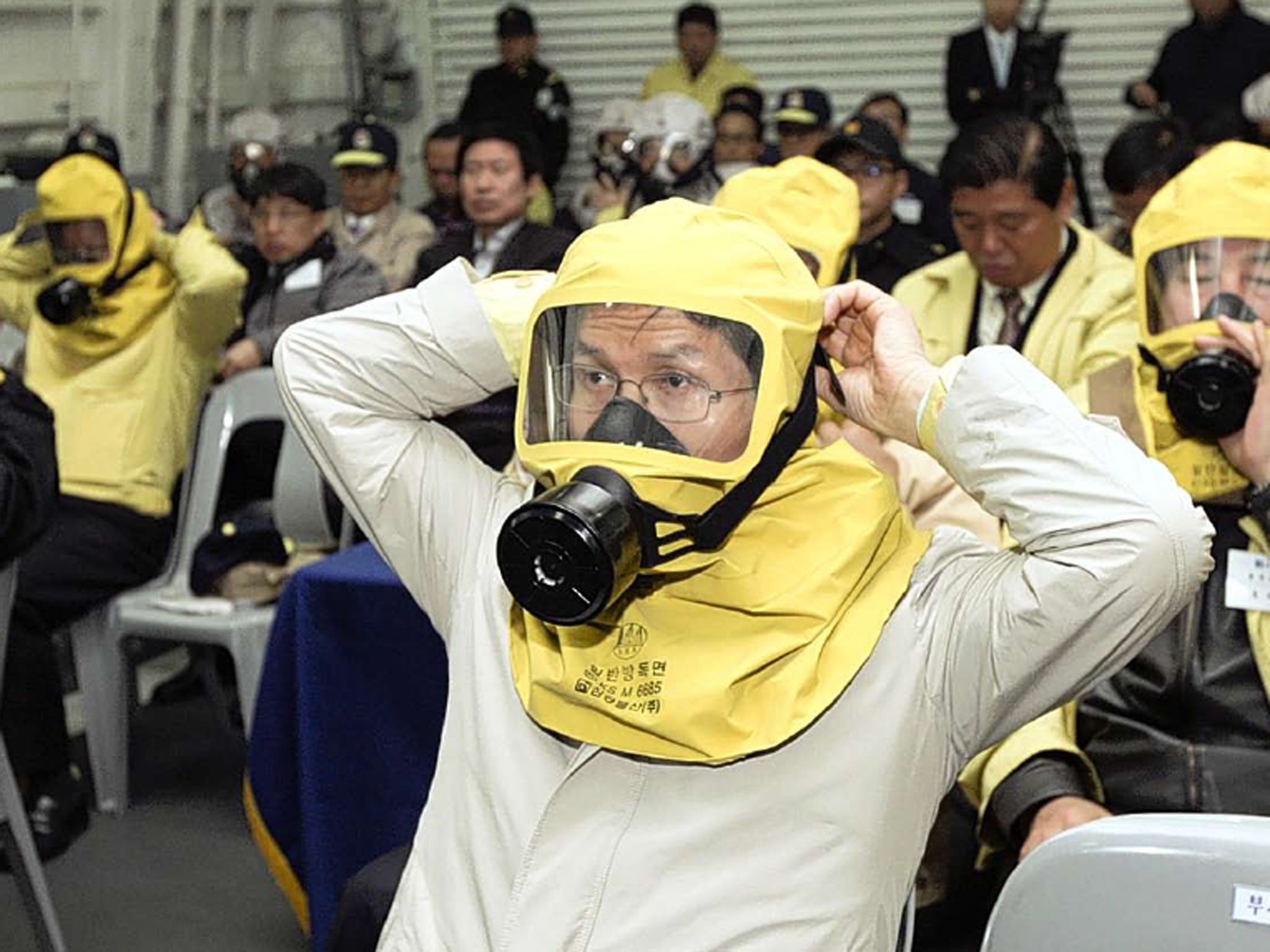North Korea: Pyongyang's isolation increases with closure of commercial complex shared with the South
Shutting border unit represents a major blow to heavily indebted economy of North

North Korea is withdrawing over 50,000 workers from the Kaesong industrial complex, its last commercial lifeline with the South and a key symbol of cross-border co-operation. The move comes almost a week after Pyongyang closed off the complex to staff and deliveries from the South, effectively shutting down operations at many of the 123 South Korean companies that are based there.
Around 500 South Koreans are reportedly still at the site, located a few miles north of the demilitarised zone that divides the two countries. A statement in the North’s official Korean Central News Agency (KCNR) warned the closure of the complex, thought to bring over $80m (£52m) a year into the country, could be permanent.
A senior Pyongyang official visited Kaesong yesterday and blamed remarks “slandering the dignity” of his government for the decision, according to KCNR. South Korean government officials have repeatedly suggested that the bulk of its profits go to the dictatorship’s ruling elite.
If permanent, the closure would be a major blow to the North’s economy, which groans under debt owed mainly to its Cold War allies. Russia has written off much of the debt but the North is on a blacklist of international banks and reportedly also owes $2bn to Western financial institutions.
The North’s leadership is thought to oversee a two-tier economy: one legal and the other funnelling profits from illegal drugs, contraband and counterfeit US dollars into a government bureau called Office 39, according to the US Army’s Strategic Studies Institute. The country finances its chronic trade deficits partly through weapons, becoming a “significant player” in the global arms industry in the 1980s, says Marcus Noland, director of studies at the Peterson Institute for International Economics in Washington DC. The US-based Arms Control and Disarmament Agency says weapons at times account for more than a quarter of the North’s exports.
In 1998, it admitted exporting weapons to Iran and Syria, and there is speculation that the list of clients includes other countries in the Middle East, South America and Africa. “Total revenues … are subject to dispute, with the conventional wisdom putting missile exports at around $100m a year,” says a co-authored report by Mr Noland.
The caretaker of the first family’s finances is thought to be General Kim Kyong-hui, the sister of Dear Leader Kim Jong-il, who died in 2011. “She takes care of finances and controls the private chest of Kim Jong-il,” says Kim Sung-hak, a political scientist at Seoul’s Hanyang University.
There is strong evidence that their private wealth is considerable. The Kim family and the North’s leadership have squirrelled away hundreds of millions of dollars in Chinese bank accounts, mostly in Shanghai, according to US Treasury and intelligence officials. The officials say they have spent years trying to persuade the Chinese government to freeze these accounts. With the peninsula in crisis, there may be signs they are taking those pleas seriously, says Hanyang University’s Mr Kim. Beijing ordered a Chinese bank to block remittances to North Korea from the Chinese frontier city of Dandong last month. “That’s unprecedented,” he says.
US officials believe the recent Washington strategy of leaning harder on Pyongyang to elicit a response from Beijing, though risky, may be paying off. “You’re starting to get more of a buzz in Chinese leadership circles that more has to be done,” said a former CIA official for East Asia.
China is the North’s main business partner, accounting for around 70 percent of its trade, according to most qualified observers. Beijing allows Pyongyang consistently to run annual bilateral deficits. It provides aid and runs a vital oil pipeline into the country that it could technically cut off at any time, says Mr Noland. That would bring the North to a standstill but would probably trigger a war, believes Mr Kim.
Intelligence experts speculate about who may be paying for the North’s nuclear tests. Yesterday, the South’s Unification Minister, Ryoo Kihl-jae, appeared to suggest that Pyongyang was preparing to carry out a fourth test. “North Korea has carried out three tests already so they are more than ready to carry out a fourth,” said a spokeswoman for Mr. Rhoo. “But there are no physical signs of a test for now.”
Join our commenting forum
Join thought-provoking conversations, follow other Independent readers and see their replies
Comments
Bookmark popover
Removed from bookmarks